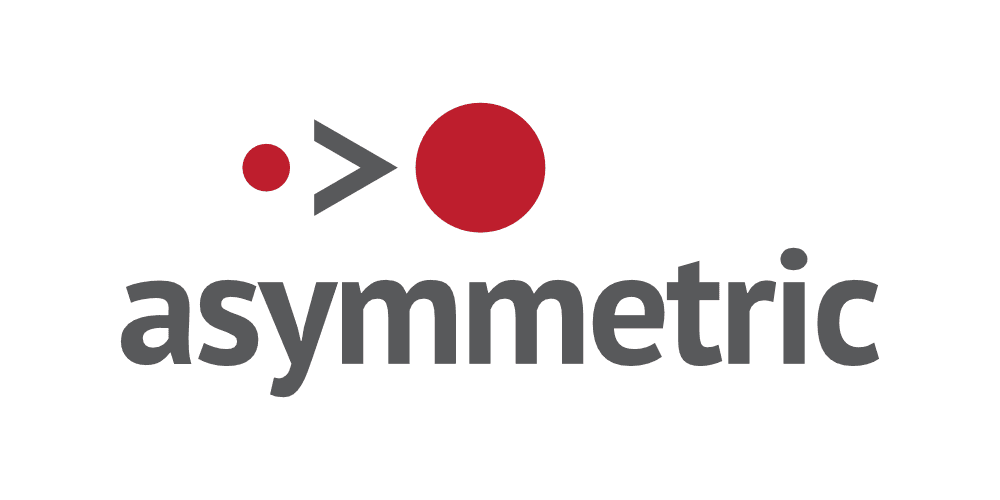If you’re a business owner building a website, launching a blog, or running digital ads, one foundational task sets the stage for success: keyword research.
Keyword research isn’t just a buzzword in digital marketing—it’s a vital practice that powers search engine optimization, content marketing, and pay-per-click advertising. Whether you’re trying to boost organic keyword research or improve your PPC campaigns, finding the right keywords ensures you’re targeting the right audience at the right time
What Is Keyword Research?

Keyword research identifies and analyzes users' search terms in search engines like Google. This process helps you understand how your target audience is searching, what problems they want to solve, and how your content or product can meet their needs.
Using keyword research tools, you can access keyword data like monthly searches, keyword difficulty, and competition levels to identify relevant keywords with high potential for your business and gain detailed insights about any keyword.
Why Keyword Research Is So Important

1. Drive Targeted Search Engine Traffic
When you use high search volume keywords and understand their search volumes, your content will likely rank in Google search results, driving consistent and relevant search engine traffic to your site. Instead of guessing what people want, you’ll base your content on valuable data.
2. Understand Search Intent
Not all keywords are created equal. Some indicate that a user is researching, while others signal they’re ready to buy. For instance, a search query like 'how to start a blog' may reflect varying intents—whether users want to know about creating a blog post or launching an entire blog website. This is where understanding search intent becomes crucial. Effective keyword research helps you match your content to what users are looking for— information, comparisons, or a purchase.
3. Optimize Content Strategy and SEO Efforts
Keyword research fuels your SEO strategy. With the most relevant keywords, you can create targeted SEO content that aligns with what your audience is searching for, ensuring you produce relevant content that resonates with them. This leads to better rankings, more traffic, and ultimately more conversions.
When creating content, using long-tail keywords can help you capture niche audiences and outperform competitors targeting more generic phrases.
Tools to Supercharge Your Keyword Research

The quality of your keyword strategy depends heavily on the tools you use. Here are some of the best keyword research tools, including a free keyword tool, to help you discover the perfect terms:
1. Google Keyword Planner
Part of the Google Ads platform, Google Keyword Planner is a free tool that provides search volume data, keyword suggestions, and estimates for monthly search volume. You’ll need a Google Ads account to access it, but it’s an essential tool for beginners and pros alike, and it remains completely free regardless of whether you engage with Google Ads.
2. SEMrush Keyword Magic Tool
The Keyword Magic Tool from SEMrush is excellent for discovering long-tail keyword opportunities and can help you generate keyword ideas. It organizes related keywords, shows keyword difficulty, and helps with position tracking.
3. Ubersuggest
Ubersuggest is a free keyword research tool that gives users keyword ideas, search volume, competition scores, and content suggestions, helping you identify different keywords for your campaigns. It’s a great place to start if you want free keyword research options.
4. Google Trends & Google Autocomplete
Use Google Trends to identify rising keywords and see how interest in specific search queries evolves, based on what people search for. Meanwhile, Google Autocomplete can help you find popular keywords and generate new keyword ideas based on what users are already typing into Google search.
Identifying Related Keywords
Identifying related keywords is a crucial step in keyword research. It involves finding keywords that are similar to your target keyword and have a high search volume. Associated keywords can help you create content that resonates with your target audience and increase your website’s visibility in search engine results. You can use keyword research tools like Google Keyword Planner, SEMrush, or Moz Keyword Explorer to find related keywords. These tools provide features like keyword suggestions, search volume data, and competitor analysis to help you identify the best associated keywords for your content.
Understanding Search Volume and Search Results

Understanding search volume and search results is essential for effective content marketing strategies. Search volume refers to the number of times a keyword is searched on search engines like Google. Search results, on the other hand, refer to the list of websites that appear when a user searches for a keyword. By analyzing search volume and search results, you can determine a keyword's popularity, identify market gaps, and create content that meets the needs of your target audience. You can use tools like Google Trends, SEMrush, or Ahrefs to analyze search volume and results.
How to Use Keyword Research in Your Marketing Strategy

Create a Targeted Keyword List
Once you’ve gathered your keyword data, build keyword lists that include:
- High search volume keywords for broad reach
- Long-tail keywords for niche topics and conversions
- Low competition keywords for easier rankings
- Keyword suggestions with transactional intent
This combination ensures that you’re targeting terms that are achievable and effective.
Map Keywords to the Buyer Journey
Understanding search intent allows you to map relevant keywords to different funnel stages. Use informational keywords for blog posts, comparison terms for landing pages, and transactional terms for product pages or paid ads.
Track Results Over Time
Use tools like Google Analytics, Search Console, and keyword tool platforms to monitor performance, ensuring you integrate data from your search console account for deeper insights. Keep an eye on monthly searches, rankings, and conversion rates. Periodic keyword audits will ensure your strategy stays up to date.
Free Keyword Research: Worth It?
Many businesses think keyword research requires a big marketing budget, but that’s not true. You can use free keyword research tools to find keywords, assess competition, and generate actionable keyword ideas without spending a dime.
Some of the best free keyword tools include:
- Google Keyword Planner
- Ubersuggest
- Answer the Public
- Moz Keyword Explorer (free version)
These tools offer free searches daily and are especially helpful when starting out. They allow you to continuously discover more keywords.
Beyond SEO: How Keyword Research Impacts Paid Search
If you run Google Ads or other paid search campaigns, your keywords, especially high-volume keywords, determine the effectiveness of your ads. Knowing the keyword difficulty, search volume, and CPC helps you target better and maximize ROI.
With a solid keyword planner, you can align your PPC campaigns with what your audience is already looking for, minimizing wasted ad spend and improving conversions.
Conclusion: Build Your Strategy on a Foundation of Keyword Research
At its core, keyword research is about understanding your audience and meeting them where they are—using real search terms on search engines.
With the help of keyword research tools, a well-crafted keyword list, and a consistent SEO strategy, you can create high-impact blog posts, landing pages, and content marketing campaigns that deliver real results, especially when you understand what keywords your competitors rank for.
Don’t skip this step. Whether you’re doing organic keyword research or planning your next ad campaign, the right keywords will drive better traffic, conversions, and business growth.
Ready to get started? Explore the top keyword research tools, analyze your monthly search volume, and start creating smarter content today.

Frequently Asked Questions (FAQs)
Why is keyword research essential for SEO?
Keyword research uncovers the terms and questions your audience types into search engines. This lets you align your content strategy with real search intent, helping you rank higher and attract qualified traffic.
What tools are best for keyword research?
Google Keyword Planner is ideal for beginners, while SEMrush, Ahrefs, and Moz provide advanced insights like keyword difficulty, CPC, and competitor analysis. Free tools like Ubersuggest and Answer the Public also offer solid keyword ideas.
How do I choose the right keywords for my content?
Focus on high search volume, low competition, and long-tail keywords that match user intent. If your goal is conversions, prioritize keywords with commercial or transactional intent.
How often should I update my keyword list?
At a minimum, review and refine your keyword strategy quarterly. Market trends and search behaviors change over time, so frequent updates ensure your content stays relevant and competitive.
Is keyword research only beneficial for SEO?
Not at all. Keyword research directly influences paid advertising, product development, content planning, and email marketing. It ensures all digital channels speak the language of your target market.
What’s the difference between long-tail and short-tail keywords?
Short-tail keywords are broad and competitive (e.g., “marketing”), while long-tail keywords are specific and often have higher conversion potential (e.g., “affordable digital marketing for chiropractors”).
Can I do keyword research without spending money?
Yes. Tools like Google Keyword Planner, Ubersuggest, and Google Trends offer robust free options to get started. Many paid tools also provide limited free access or trial versions.

Ready to Accelerate Your Growth Marketing Strategies?
Transform your business with strategic growth marketing. Whether you aim to increase leads, expand your market reach, or optimize conversions, our expert team at Asymmetric Marketing is here to guide you.
Get Started Today:
Schedule a Consultation: Explore tailored strategies for your business growth. [Book Now]
Learn More: Discover additional insights and resources to fuel your growth journey. [Explore More]
Take the next step towards sustainable growth and success. Let’s amplify your business potential together!
Mark Hope
Partner, Asymmetric Marketing
📧 mark.hope@asymmetric.pro
📞 (608) 410-4450
About the author
Mark A. Hope is the co-founder and Partner at Asymmetric Marketing, an innovative agency dedicated to creating high-performance sales and marketing systems, campaigns, processes, and strategies tailored for small businesses. With extensive experience spanning various industries, Asymmetric Marketing excels in delivering customized solutions that drive growth and success. If you’re looking to implement the strategies discussed in this article or need expert guidance on enhancing your marketing efforts, Mark is here to help. Contact him at 608-410-4450 or via email at mark.hope@asymmetric.pro.

